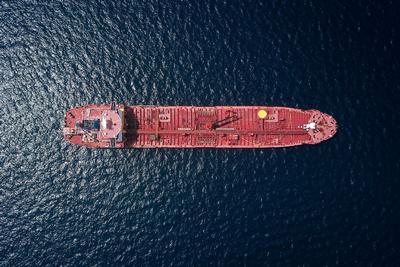Data-centric engineering optimises routing for cleaner commercial shipping

A genetic algorithm developed by researchers at the University of Southampton is optimising a marine vessel routing application for a cleaner future in commercial shipping.
The collaboration between Southampton engineers and Theyr Ltd combines the very latest in high fidelity metocean forecast data with leading edge algorithms to produce the most efficient routes for vessels and reduce greenhouse gas (GHG) emissions.
The latest International Marine Organisation (IMO) regulations compel the shipping industry to significantly reduce its GHG emissions, which has led to a major increase in the cost of compliant fuels.
These latest regulatory requirements are invigorating the digital revolution within the industry, facilitating the transition to a greener future.
Dr Adam Sobey, Associate Professor in the Maritime Engineering Group and co-lead of the marine and maritime group in the Data-Centric Engineering programme at The Alan Turing Institute, says: “This project exploits the very latest in AI through a genetic algorithm developed by my team which shows leading performance on a range of optimisation problems.
“We will use these algorithms to increase the fidelity of data that we can use and the range over which we will optimise. This will future proof the software and provide leading performance over competitor software.”
The project is being funded by a grant from the £4.8 million SPRINT (SPace Research and Innovation Network for Technology) programme that provides unprecedented access to university space expertise and facilities.
The University is providing Theyr with access to the the UK’s largest academic supercomputer, IRIDIS5, to speed up the verification process.
David Young, CEO of Theyr, says: “Combining our expertise with the substantial knowledge and resources of the University of Southampton will facilitate the future sustainability of commercial shipping by effectively reducing fuel costs and GHG emissions within the industry through the use of AI and high-fidelity metocean data.”